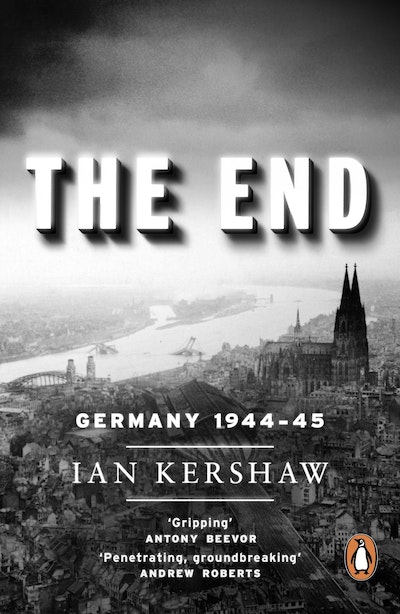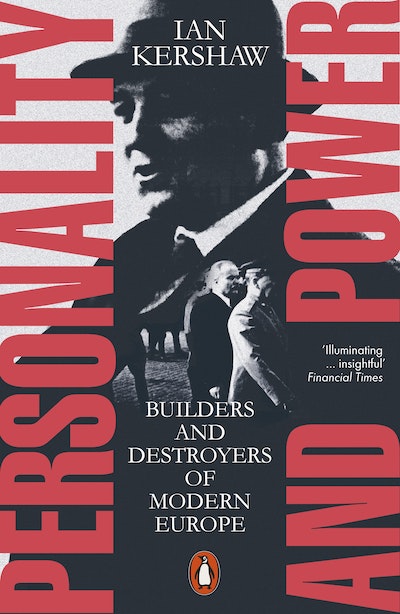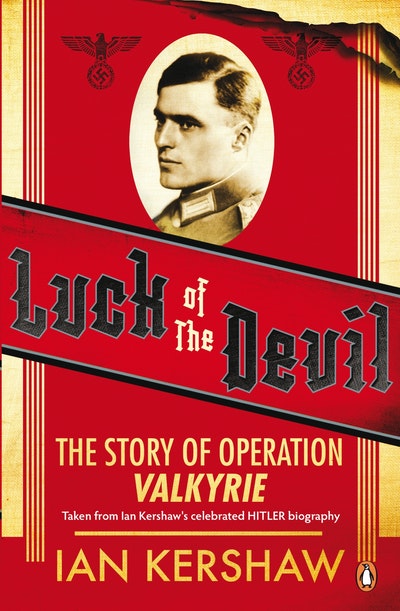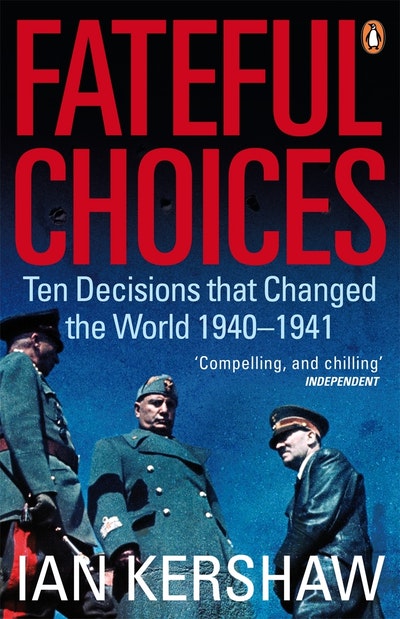- Published: 3 October 2011
- ISBN: 9780141957074
- Imprint: Penguin eBooks
- Format: EBook
- Pages: 592
The End
Hitler's Germany, 1944-45
- Published: 3 October 2011
- ISBN: 9780141957074
- Imprint: Penguin eBooks
- Format: EBook
- Pages: 592
A remarkable feat of historical scholarship and intelligent analysis
Jonathan Sumption, Spectator
Masterly ... Kershaw's gripping and boldly intelligent work of scholarship ... will surely become the standard popularly accessible account of the Nazi system's terrible final phase
Financial Times
Gripping yet scholarly ... the best attempt by far to answer the complex question of why Nazi Germany carried on fighting to total self-destruction. Kershaw, the author of the best biography of Hitler, is the finest sort of academic, for he combines impeccable scholarship with an admirable clarity of thought and prose
Antony Beevor, Telegraph
Brilliant ... nuanced and sophisticated ... undoubtedly a masterpiece
Mail on Sunday
Well-written, penetrating ... and ground-breaking
Andrew Roberts, Evening Standard
Magisterial ... distinguished
Daily Mail, Book of the Week
Kershaw is a sure-footed guide through the Hades of the final dark months of the war in Europe ... his is a thoughtful and thought-provoking account, which admirably combines analysis, historiography and commentary within a very readable narrative
Independent on Sunday
No one is better qualified to tell this grim story than Kershaw ... A master of both the vast scholarly literature on Nazism and the extraordinary range of its published and unpublished record, Kershaw combines vivid accounts of particular human experiences with wise reflections on big interpretive and moral issues ... No one has written a better account of the human dimensions of Nazi Germany's end
New York Times Book Review
A compelling account of the bloody and deluded last days of the Third Reich ... this is far from being of mere academic interest ... The greatest strength of Kershaw's narrative is that he gives us much more than the view from the top ... Interwoven are insights into German life and death at all levels of society
The Times
Kershaw says that his book is not a military history. Nevertheless he offers an admirably clear, coherent discussion of the military situation and insightful portraits of the leading figures in the German armed forces ... The End is sober, judicious, clearly written and superbly well researched - a definitive history of the last months of the Third Reich
Richard Bessel, History Today
Kershaw ... understands as well as any man alive the complex power structure that existed in Nazi Germany ... gripping ... arguably the most convincing portrait of Germany's Götterdämmerung we have seen so far
Wall Street Journal
Britain's most feted and prolific historian of the Third Reich
Sunday Times
Author of a magisterial biography of Hitler, [Kershaw] is among the foremost western scholars of Nazi Germany. Although this book pursues a narrative of events between June 1944 and May 1945, its real business is to explore the psychology of the German people
Max Hastings, Sunday Times
An insightful study of how the Führer held his grip over the German people for so long
Telegraph
Comprehensive ... it generates real power
Observer










